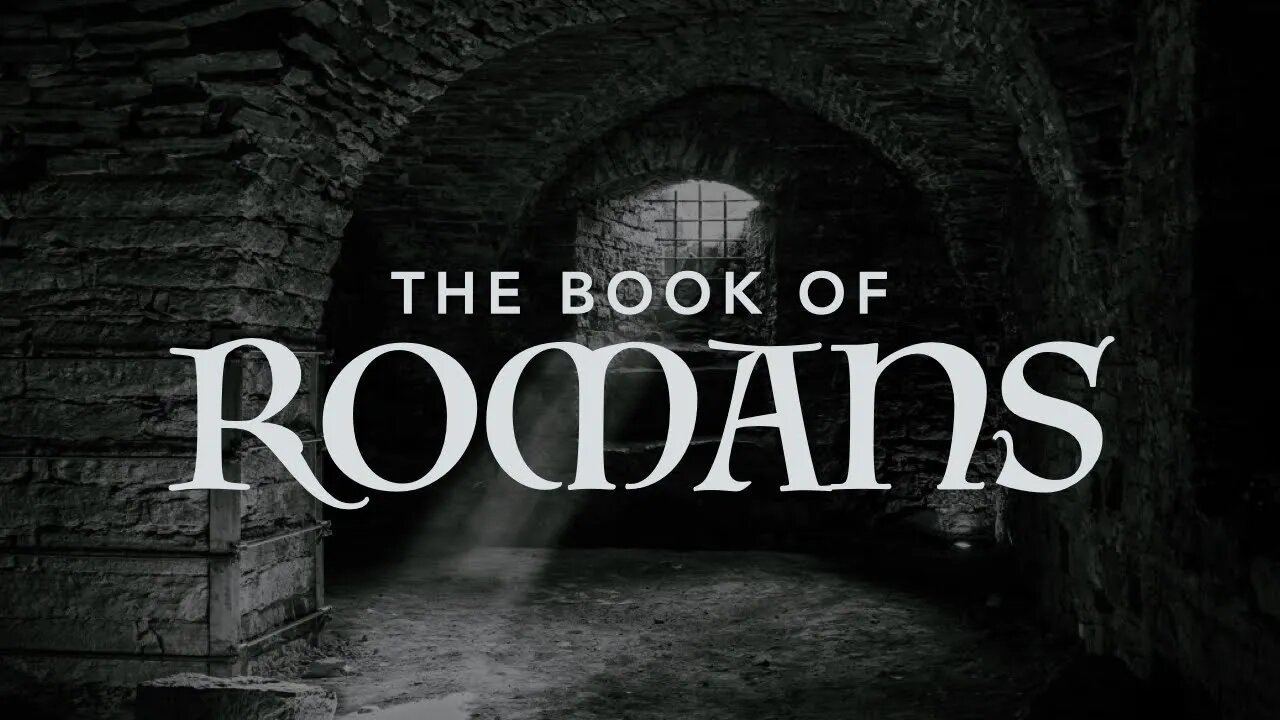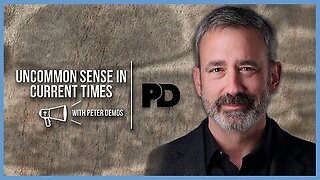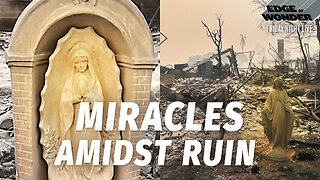Premium Only Content

THE BOOK OF ROMANS 7:7-25 | OUR WAR AGAINST THE FLESH
Mike Balloun teaches today. 11/14/20.
THE BOOK OF ROMANS 7:7-25
OUR WAR AGAINST THE FLESH
VERSES: Galatians 2:20-21, 3:24, 5:1-26; Luke 12:48; 1st Corinthians 5-6; Ephesians 5
STUDY NOTES: https://www.dropbox.com/sh/d35i2nxx8o4sknt/AABnnVQe6FWuUf_5MA_Sk2Nca?dl=0
AUDIO:
Subscribe to Receive Updates from For His Glory TX: http://eepurl.com/o7-J9
DISCOVERING THE WICKEDNESS OF THE FLESH
In Chapter 7, verses 7-25 we have come to one of a few very vital passages in New Testament Scripture where critical Truth hangs in the balance of the interpretation. There are opposing opinions among godly men arising out of legitimate questions on Paul’s statements.
1) Is Paul speaking of his own personal experience, or people in general?
2) If it is Paul speaking of himself, is he talking about before or after he becomes a Christian? (If it’s before, then it is stated or at least implied that a Christian is not to have this experience.)
3) Is the experience or dilemma of spirit against flesh occasional or continual?
If many godly men differ to the extreme on a doctrinal understanding, as many do on the questions above, often true facts are found in both sides and Truth is found when put together. Though those men differ, they both have yet seen sufficient light upon the subject to make their firm belief known. So it is that the answer to the controversial questions above are found in ‘both’. As to the first question, is Paul speaking of his personal experience? Over 50 times in this short passage he uses ‘I’, ‘me’, ‘us’, and ‘we’. Additionally, the cry from the heart of ‘how wretched a man I am!’ is personal and would not be stated that way otherwise. Why did he reveal himself in such a personal way? Because the Holy Spirit is tying the experience to all regenerated believers. As a general experience, it is the autobiography of every Christian. Thus both sides have some aspects of truth in their interpretations of whom Paul is writing about.
The word driving the context of Chapter 7 is ‘Law’. The word is mentioned over 20 times, and the first and last verses highlight the ‘Law of Moses’. It has been the center of discussion for 2 chapters; in regards to what the Law can and cannot do. The Law of Moses is the heart of the Jewish religion. Paul (as all Jews do) loves and venerates it. It is the prominent feature of every Synagogue, a copy of it is always front and center. Keep the Torah and be ‘saved’. They love to read it, touch it and then touch themselves, and kiss it. But yet in nearly every chapter, Paul resists the Law by saying some disparaging remark about it. In the 2nd Chapter he says; the Law condemns you, in the 3rd Chapter-he says; the Law cannot justify you, in Chapter 4 it is the Wrath of God, in Chapter 5 the Law increases your transgressions, in Chapter 6 you are finished with the Law and not under it, in Chapter 7 you are discharged/divorced from the Law, and the Law of Moses arouses bad desires in you. You would begin to think by all this that Paul thinks the Law is bad or evil; and you might ask him; (VERSE 7-13) Paul, is the Law of Moses sinful? “God forbid…” by no means is it bad, it is holy!’, he says. ‘But it certainly does a lot of harm to me! There is nothing wrong with the Law, there is something wrong with me.’ A well-used analogy is: There is nothing wrong with the Sun, but when it shines upon my garden it causes weeds to spring forth. When the Law of Moses shines upon the heart of a sinner, it just makes him the worse. Paul now illustrates this truth in his own heart.
Verses 7-13 are in the past tense. Paul was not, as many have estimated, revealing his past when he was but a small boy, or when he was unregenerate (although there is an element of truth in the thinking), but that time is when he refers to himself in VERSE 9 (read) ‘For I was alive without the law (of Moses) once…’ (This time was when he was full bloom in religious Judaism. It was before he was a Christian. It was then when he was in great ignorance of how the Law applied to him in the most personal way. That is, in what the Law was actually requiring of him internally and not just in his service externally. It was the time in which he thought himself ‘blameless’ in the keeping of the Law, and thus being impenitent, having no sense of sin. Of course what he had wrongly supposed was that which religious Jews esteemed as service to God answered to what God had set forth in the Law of Moses Matthew 23) …but when the commandment came… (that is when his religiously blinded eyes were open to the convicting and condemning truth of the Law of Moses) …sin revived… (and went from a anemic like state of ineffectiveness to standing up in a thriving state) and I died.” I discovered myself....
DOWNLOAD COMPLETE STUDY NOTES:
https://www.dropbox.com/sh/d35i2nxx8o4sknt/AABnnVQe6FWuUf_5MA_Sk2Nca?dl=0
-
 2:26:17
2:26:17
For His Glory TX
27 days ago🔥 GENESIS CHAPTER 31 | BASIC UNDERSTANDINGS OF SCRIPTURE FOR TRUTH (PART 30) 🔥
1501 -
 51:58
51:58
PMG
10 hours ago $2.62 earned"Can the Government Learn from Elon Musk’s 70% Labor Cut? A Deep Dive into Inefficient Agencies"
42.9K1 -
 6:39:15
6:39:15
Amish Zaku
10 hours agoRumble Spartans #10 - New Year New Maps
37.4K2 -
 1:04:58
1:04:58
In The Litter Box w/ Jewels & Catturd
1 day agoNo Tax On Tips! | In the Litter Box w/ Jewels & Catturd – Ep. 722 – 1/17/2025
155K32 -
 5:35:39
5:35:39
Dr Disrespect
16 hours ago🔴LIVE - DR DISRESPECT - WARZONE - CRAZY CHALLENGES
175K34 -
 1:16:30
1:16:30
Edge of Wonder
12 hours agoLA Fire Updates: Miracles Amidst the Devastation
48.7K14 -
 54:54
54:54
LFA TV
16 hours agoBanning Mystery of the Ages | TRUMPET DAILY 1.17.25 7pm
41.5K8 -
 1:47:13
1:47:13
2 MIKES LIVE
10 hours ago2 MIKES LIVE #168 Open Mike Friday!
35.3K3 -
 1:05:11
1:05:11
Sarah Westall
11 hours agoMysterious Fog and California Wildfires Both Contain Dangerous Elements w/ Dr Robert Young & Hazen
54.7K7 -
 1:40:48
1:40:48
Mally_Mouse
10 hours agoLet's Play!! -- Stardew Valley pt. 23!
29.4K